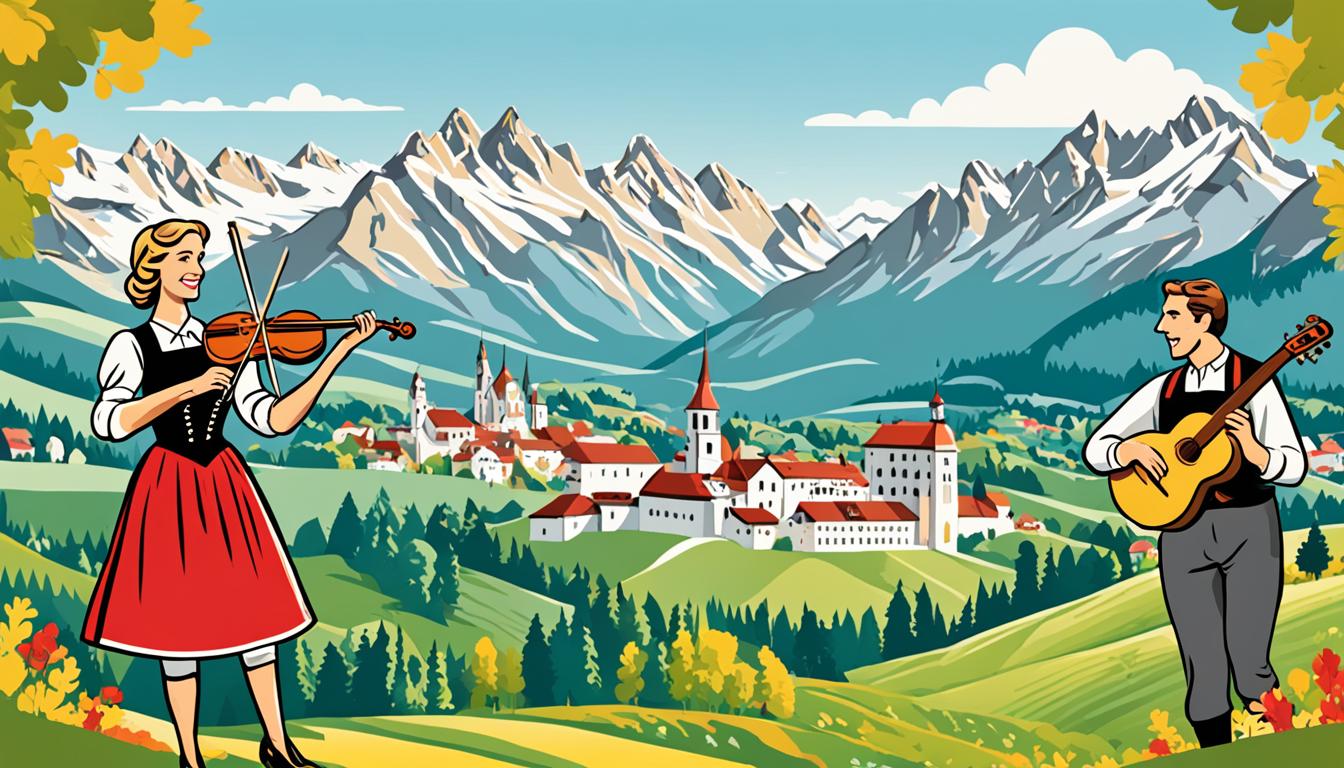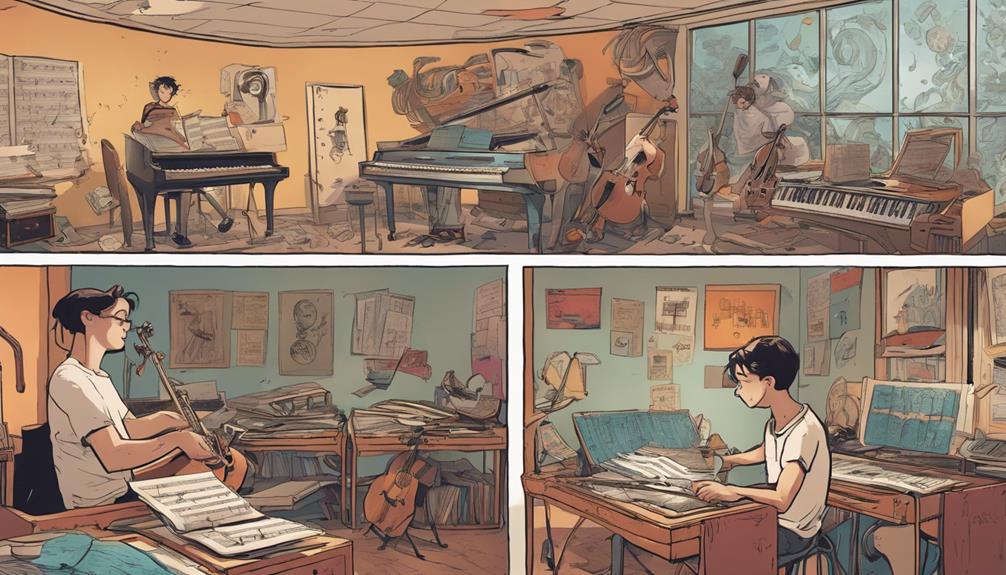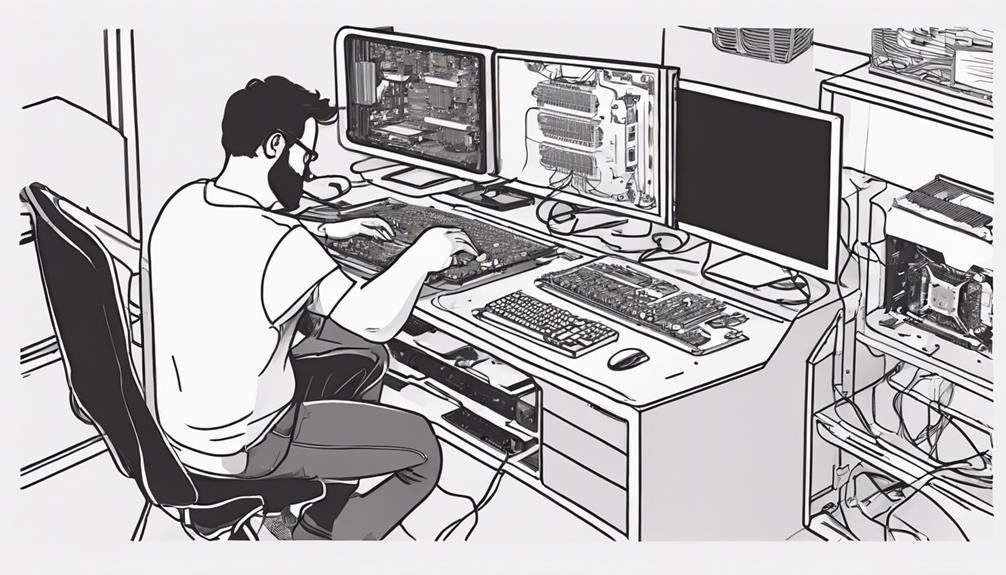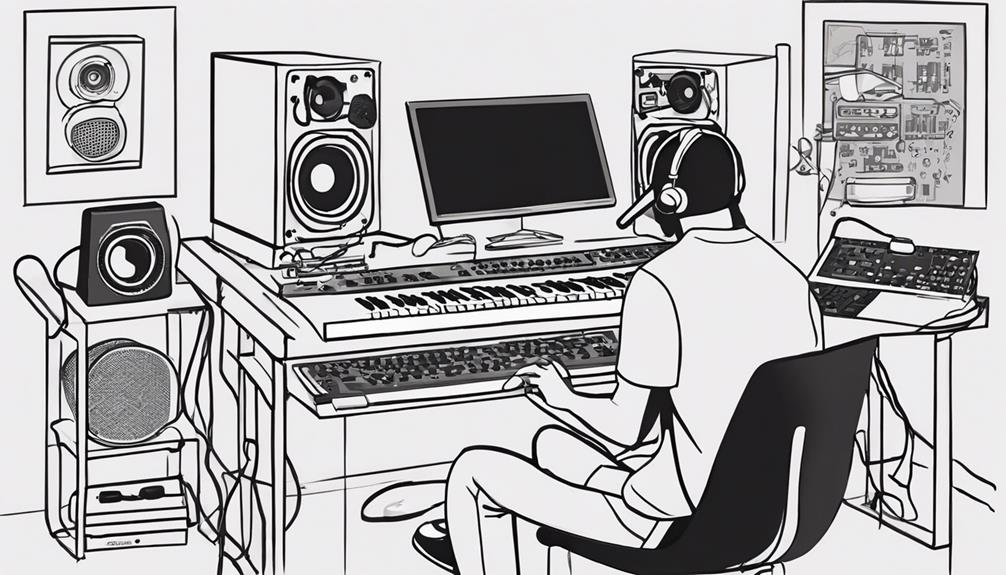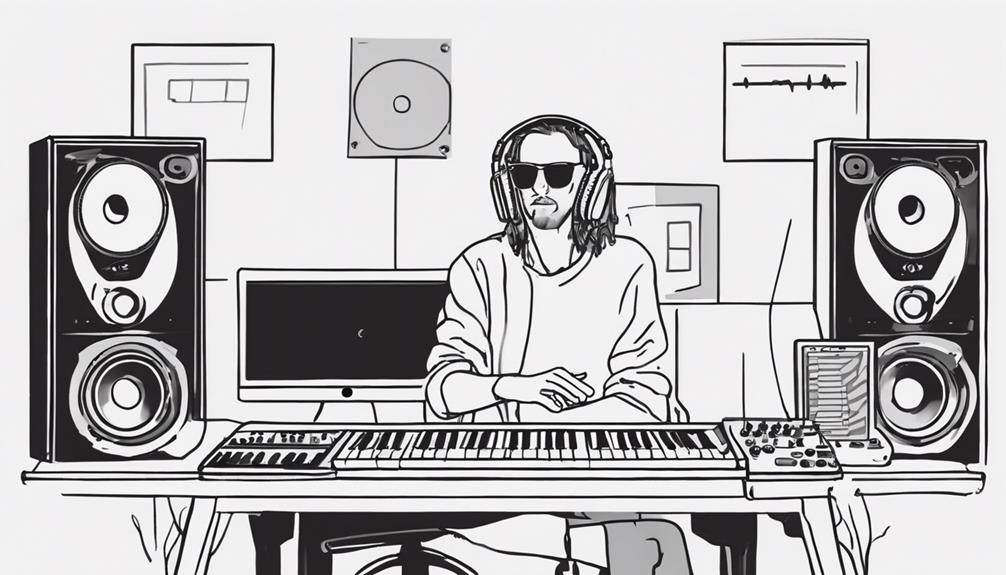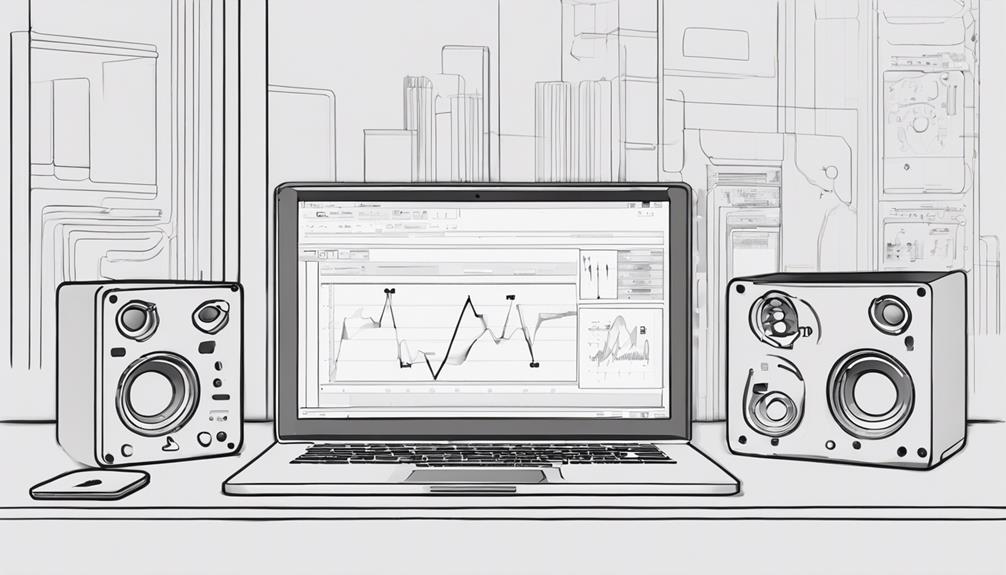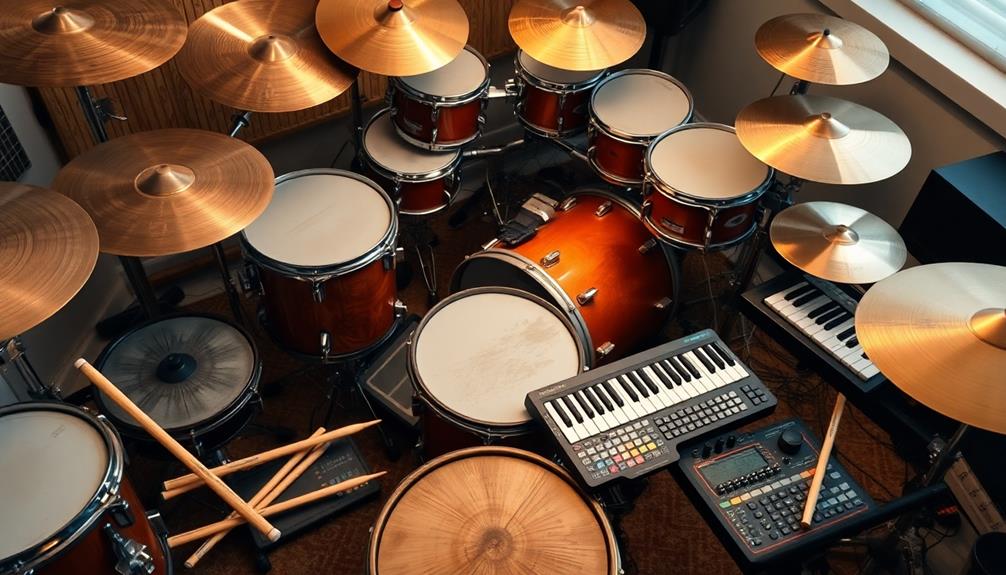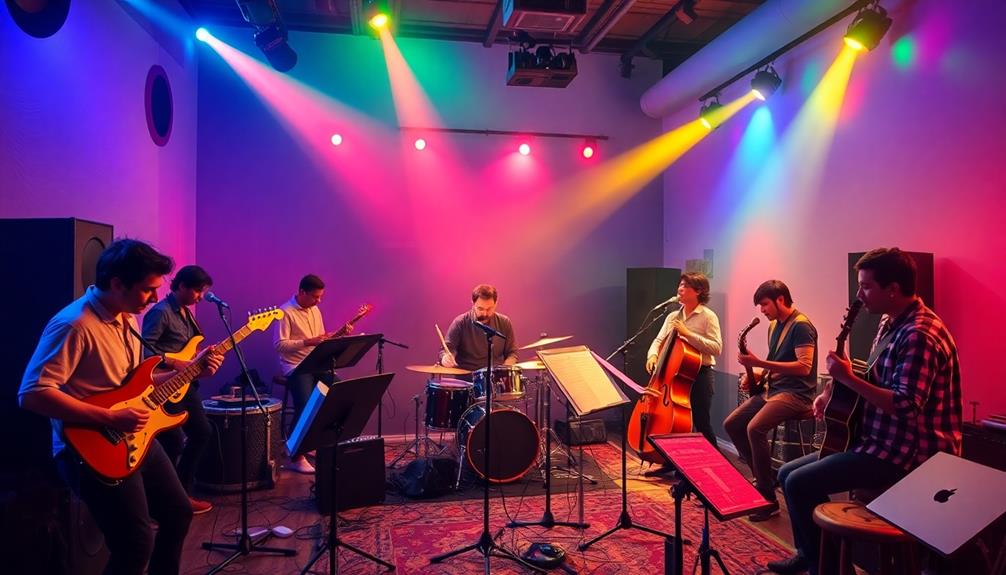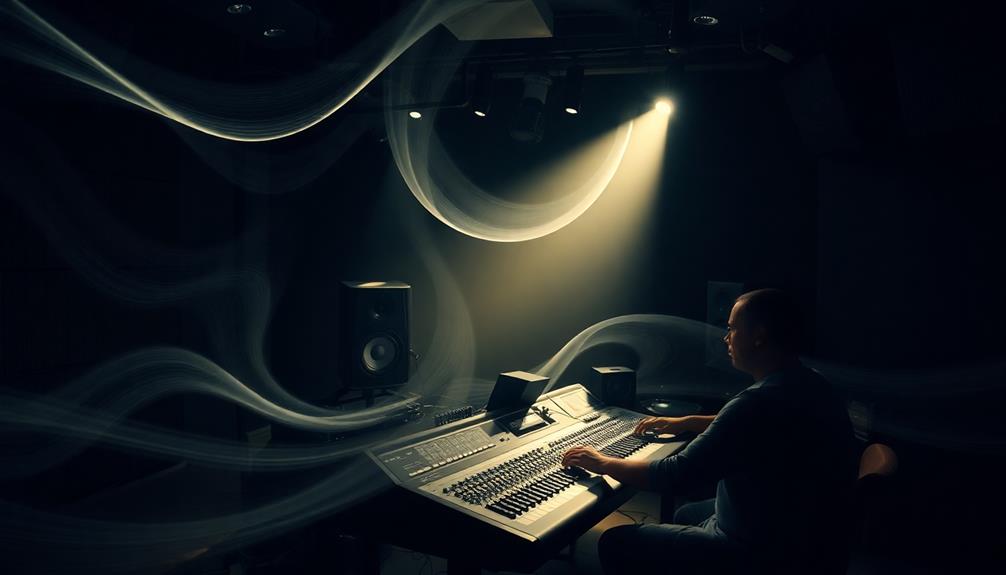The Sound of Music, loved for 50 years, still touches hearts across the globe. It’s famous worldwide, thanks to movies, shows, and many articles. This film has a special spot in many people’s lives.
Moreover, the movie’s beautiful setting in Austria captivates fans. Many travel there to see the landscapes that inspired the story.
Key Takeaways:
- The Sound of Music movie celebrates its 50th anniversary this year1.
- Lady Gaga performed a medley of songs from The Sound of Music at the Oscars1.
- The movie has been recognized in various articles and is considered a favorite musical by many1.
- The author visited Austria, inspired by the movie1.
- The author attended a Sound of Music bus tour in Salzburg1.
The Popularity of “The Sound of Music”
“The Sound of Music” remains a beloved classic worldwide. It has timeless stories, unforgettable songs, and great talents involved. That’s why it still captures many hearts.
The Broadway show started in 1959 and received amazing praise. It earned five Tony Awards, including Best Musical2. The musical has seen many productions and revivals, showing its lasting appeal. It’s still loved by people of all ages in theaters around the globe.
The 1965 movie made “The Sound of Music” even more famous. Directed by Robert Wise and starring Julie Andrews, it won five Academy Awards2. Julie Andrews’ role made the film stand out. Her previous success in “Mary Poppins” also helped.
The story behind “The Sound of Music” is truly engaging. It’s based on the real Trapp Family Singers. Maria Von Trapp wrote five books about their life3. The musical mixes history with fiction, keeping the essence of their story. It talks about love, family, and staying strong.
The musical is known for its songs. “Do-Re-Mi,” “Edelweiss,” and “Climb Ev’ry Mountain” are fan favorites. The title song captures the story’s heart2.
The story is set in 1938, just before the war. It tells how Maria becomes a governess and faces challenges with music and courage3.
| Year | Awards | Accolades |
|---|---|---|
| 1959 | Five Tony Awards | Best Musical |
| 1965 | Five Academy Awards | Best Picture |
| Over 35 years | Enduring global success | |
| 1928 | Maria Trapp as a governess |
In 1998, the real von Trapp family and film actors reunited. This showed the deep connection between their stories and the musical4.
Over the years, “The Sound of Music” has touched many. Its story, music, and messages have made it a timeless, adored musical3.
An Idyllic Period before the War
In 1938, Maria and Georg von Trapp’s story starts, a calm time before World War II began. Even with rising tensions, they found love and joy. They enjoyed happy moments, despite the world’s uncertainty.
They lived at the lovely Villa Trapp, surrounded by nature’s beauty and their music. Music deepened their connection, adding peace and harmony to their lives amidst hard times.
Maria and Georg’s love for each other and their kids was strong, even as chaos neared. They valued family, faith, resilience, and love, helping them face tough times together.
With the war coming, the von Trapps had to think about leaving Austria. Like many, they had to flee their home to avoid the Nazis. This marked the end of their peaceful life and started a journey full of trials.
During this sweet time of innocence and love, Maria and Georg von Trapp laid their family’s foundation. Their story of music and courage would later inspire the world.
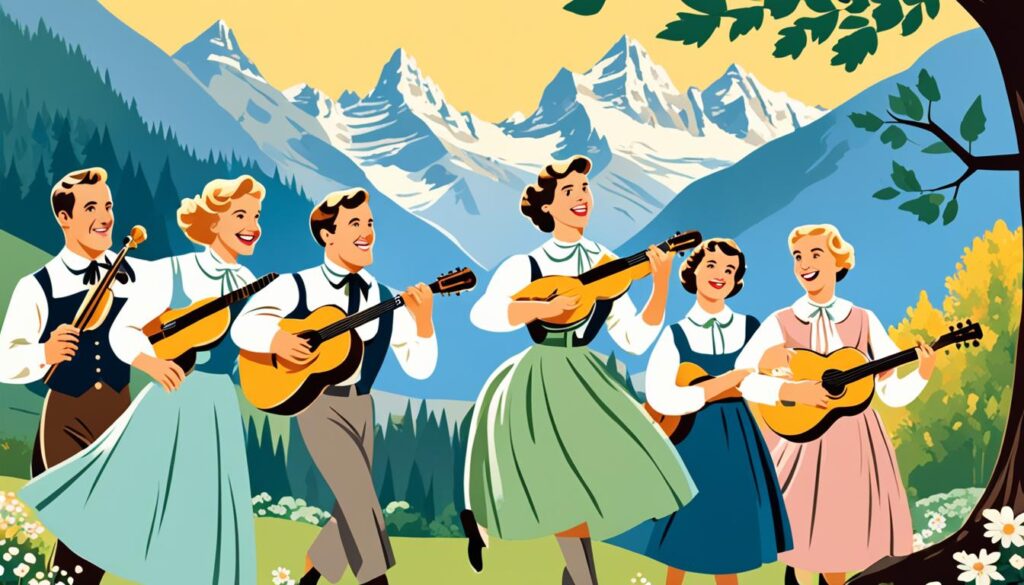
Reference:
- The Broadway musical based on the Trapp family’s story was first performed in 19593.
- Maria Trapp wrote five books about the Trapp Family Singers, with four published before The Sound of Music film release3.
- The musical adaptation of Maria Trapp’s first book, The Story of the Trapp Family Singers, was a success, outshining the Trapp family’s actual fame3.
- The film adaptation of The Sound of Music is loved as one of the best musicals ever3.
- In 1928, Maria Trapp started as a governess for Captain Georg von Trapp, well before the musical’s storyline3.
- The Trapp children’s ages and names were changed for the musical, with fictional names like Liesl and Friedrich3.
- The musical showed Captain Georg von Trapp as strict, but he was really gentle and kind, his daughter Agathe said3.
- In the musical, Baroness Schraeder competes with Maria for Captain von Trapp. She was based on Princess Yvonne, who was not fond of the children3.
The Power of Music
Music in “The Sound of Music” showcases an amazing power that’s more than fun. It unites the von Trapp family, showing love, unity, and community importance in hard times5. Maria’s character reveals how music can bring people closer and lead to good changes.
Music breaks barriers and connects people in “The Sound of Music.” When Maria sings, she wins over the children and their strict father, Captain von Trapp. Music heals and brings the family closer, creating a strong bond and belonging5.
The film stresses love and togetherness through music. Songs like “Edelweiss” and “My Favorite Things” symbolize hope and courage. They comfort the von Trapp family and strengthen their bond5.
Moreover, music symbolizes strength during war. The von Trapps’ performances become a stand against the Nazis, showing their bravery and values6. This defiance through music encourages others to fight against wrong.
The love for “The Sound of Music” shows music’s universal impact. People everywhere enjoy the film, which speaks to all ages and backgrounds. Julie Andrews’ role as Maria adds magic to it, following her success in “Mary Poppins”6. The story of Maria and Georg von Trapp, in 1938 Austria, reminds us of music’s power to unite and overcome challenges6.
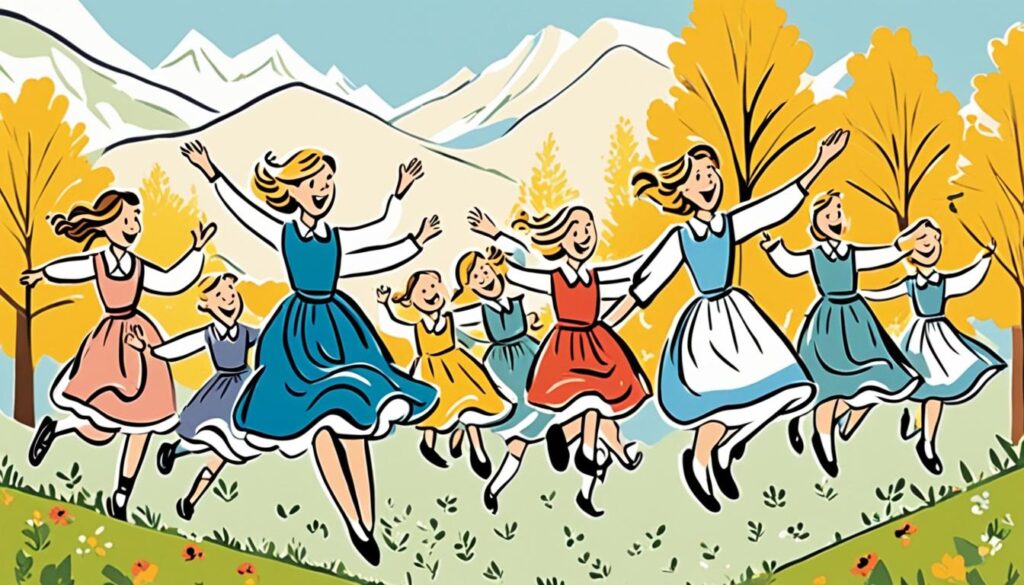
Key Statistics:
| Statistic | Reference |
|---|---|
| The Sound of Music debuted in April 1965 and became one of the world’s most beloved cinematic musicals. | 5 |
| The movie received five Academy Awards, including Best Picture. | 5 |
| The Sound of Music is the third highest-grossing film of all time in the United States when adjusting for inflation. | 5 |
| The Sound of Music Super Deluxe Edition, with more than 40 unreleased tracks and 11 alternate takes, was released in a four-CD, 1-Blu-Ray audio box set. | 5 |
| 19% off the Original Soundtrack Recording Super Deluxe Edition on sale for $89 at Amazon. | 5 |
| The von Trapp family won first place in the Salzburg Music Festival. | 5 |
| Julie Andrews’ portrayal in the movie contributed significantly to its success, following her fame from “Mary Poppins.” | 6 |
| The movie’s success is tied to its filming locations in Salzburg, which provided stunning backdrops for the story. | 6 |
Standing Together Against Adversity
The von Trapp family showed us how to stand strong together. In “The Sound of Music,” they didn’t want to follow Nazi rules. Georg von Trapp chose not to join the Nazis, showing bravery7. The family stuck to their beliefs, refusing to be pushed by Nazi forces.
In a moving scene, they perform in front of Adolf Hitler, challenging his rules. They were bold, valuing freedom over fear. This act of bravery7 is a lesson in fighting against wrong and sticking together.
Their tale tells us about beating tough times with courage. They stayed true to themselves and each other, against all odds7. Their songs and unity became a beacon of hope during hard times.

“The Sound of Music” shares the von Trapp family’s powerful story. It reminds us that together, we can overcome challenges and face tyrants like the Nazis7. They inspire us to hold on to our values and support each other.
Salzburg – The Perfect Setting
Choosing Salzburg for “The Sound of Music” was no accident8.The city’s beautiful views and historic sites made it the ideal place for the film. From the first scene in the breathtaking Untersberg mountain9, to the last song in the Mirabell Gardens, the city’s charm shines through.
Salzburg is also famous for being Mozart’s birthplace9. It has many historic spots that matched the movie’s story perfectly. Hohenwerfen Castle stood grandly for the “Do-Re-Mi” scene10. The Gschwandtanger meadows and the Mondsee basilica were also key locations, capturing the beauty of Austria and the elegance of Maria’s wedding10.

Salzburg’s mix of nature and architecture draws people from around the globe. Every year, over 300,000 tourists visit because of “The Sound of Music”8. Fans walk where Maria and the von Trapp family did, reliving the movie8.The Mirabell Gardens and the Dwarf Gnome Park are must-see spots10.
There’s more to enjoy in Salzburg than just movie sites. The Marionette Theater puts on shows that bring the film’s scenes to life8. And the “Sound of Salzburg Dinner Show” offers songs from the movie during a memorable evening8.
Sound of Music Filming Locations in Salzburg
| Filming Location | Scene | Featured in Movie? | Year Built |
|---|---|---|---|
| Hohenwerfen Castle | “Do-Re-Mi” scene | Yes | 1077 |
| Gschwandtanger meadows | Von Trapp children’s frolicking | Yes | N/A |
| Mondsee basilica | Maria’s wedding | Yes | 1686 |
| Mirabell Gardens | “Do-Re-Mi” scene | Yes | 1730 |
| Pegasus Statue Fountain | Featured in the movie | Yes | 1913 |
| Dwarf Gnome Park | Whimsical statues | Yes | 1715 |
Salzburg gives “The Sound of Music” fans lots to do8. From seeing where the film was shot, to enjoying themed shows, there’s something for everyone. This magical city draws visitors with its blend of history, culture, and natural beauty.
Fact vs. Fiction in “The Sound of Music”
“The Sound of Music” is a much-loved musical, but it’s key to know that it’s not fully true to the von Trapp family’s real story. The film, based on Maria von Trapp’s book, changes some facts. Let’s look at the key changes made in the movie.
‘The Sound of Music”1965 was the top-grossing film of that year, earning ten Academy Award nominations and winning five statuettes, including Best Picture and Best Director.”11
The number of children is the first big change. There were actually ten children, not the seven shown in the movie12. Also, Maria’s job was different. She was hired as a tutor for one sick child, not as a governess for all12.
Maria’s portrayal as a rule-breaking novice partially rings true. She was indeed rebellious and shared a deep bond with the children11. Yet, the movie makes some aspects more dramatic than they were.
“The real story of the von Trapp family’s escape from Nazi occupation was less dramatic than depicted in the film.”11
The escape scene in the movie is exaggerated. In truth, the family took a train to Italy pretending they were on vacation. They left behind their wealth12. Their actual escape was much less thrilling than in the movie.
Despite its deviations from the truth, “The Sound of Music” remains beloved by many. It airs on TV every year, charming new generations11. The movie’s magic is its ability to inspire and uplift, despite not being fully accurate.
“The Trapp Family Lodge in Vermont, operated by von Trapp family members, is still open for guests today.”12
The von Trapp family’s story continues at the Trapp Family Lodge in Vermont. Run by family members, it welcomes those wishing to connect with the story that inspired “The Sound of Music”12. The film’s legacy and the family’s story have a lasting charm.

In summary, “The Sound of Music” remains a significant film, beloved by many. Although it changes some details, its essence captures the von Trapp family’s spirit and the beauty of music. Recognizing the factual inaccuracies allows us to appreciate it both as art and history.
The Real von Trapps’ Journey
The von Trapp family fled Austria to escape the Nazis. Their escape was unlike the one in the famous musical. They traveled by train with a stop in Italy, contacting their agent to arrange travel to America13. They left their wealth and faced an unknown future.
To avoid Nazi suspicion, they acted as if on a singing tour. This clever disguise helped them leave without trouble13. Their smart plan allowed them a safe journey to the U.S.
In the U.S., they first settled in Pennsylvania then moved to Vermont. With nine children and another soon to arrive, they faced many challenges14. They supported themselves with a concert tour, sharing their music nationwide14.
World War II’s outbreak in 1939 made their situation harder14. They couldn’t return to Austria safely. They chose to make a new life in the U.S., living in a bus and touring as musicians14.

Salzburg Panorama Tours GmbH
In Austria, the von Trapp legacy lives on. Salzburg Panorama Tours GmbH offers Sound of Music tours. They share the real von Trapp story with visitors15.
| Company Information | Contact Details | Copyright Year |
|---|---|---|
| Salzburg Panorama Tours GmbH | T +43 662 88 32 11-0 | 2024 |
| F +43 662 87 16 18 | ||
| E sightseeing@panoramatours.com |
Exploring the von Trapps’ true stories offers deep insights into their escape15. This engaging tour celebrates their bravery and enduring love. It has inspired people worldwide for many years.
A Tale of Courage and Love
The real-life story of Maria Von Trapp and Georg Von Trapp is a heartwarming tale16. Even though “The Sound of Music” changed some details, their true story is still about love, strength, and resilience. This shows how powerful the human spirit can be.
Maria’s bond with the von Trapp children was very strong16. Unlike the movie, she loved the children before their father. Her love for them led her to marry Georg, creating a loving family16.
Their life had many challenges, yet music kept them going16. The children were Rupert, Agathe, Maria, Werner, Hedwig, Johanna, Martina, Rosmarie, Eleonore, and Johannes16. Music was their bond, even before Maria came into their lives16.
The movie dramatizes their escape from Austria16. But in reality, they simply took a train, not escape over mountains. Their move to the U.S. and starting over show their incredible strength and resilience16.
Captain Georg von Trapp was much kinder than the movie shows16. He cared deeply for his children, showing love even in tough times. This love kept the family strong16.
“The Sound of Music” added characters like Max Detweiler and Elsa Schraeder16. Max represents the friends who supported them. Elsa is like Princess Yvonne, who knew the Captain but wasn’t his fiancée16.
Maria and Georg’s children were already musical before she arrived16. Their love for music was a big part of their lives, long before their story became famous16.
The von Trapp family’s pursuit of a new life touches hearts around the world16. Their story of love, strength, and music inspires many, showing the power of the human spirit16.

| Statistical Data | Source |
|---|---|
| The real-life von Trapp family had ten children, not seven, with three from Georg von Trapp’s second marriage to Maria. The real von Trapp children’s names were Rupert, Agathe, Maria, Werner, Hedwig, Johanna, Martina, Rosmarie, Eleonore, and Johannes. The adaptation of The Sound of Music simplified the von Trapp family’s escape from Austria, which in reality was a simple train journey and not a daring mountain crossing. In the real story, Captain Georg von Trapp was described as warm and involved in his children’s lives, contrary to the stern and distant character portrayed in the musical. Max Detweiler in The Sound of Music is a fictional character created for the narrative; there was no single individual similar to Max in real life. The character of Elsa Schraeder represents Princess Yvonne in real life, who had a connection to Captain Von Trapp but was not engaged to him, as depicted in the musical. The real von Trapp children, including Maria and Georg’s children, had their musical journey initiated before Maria’s arrival, which was later nurtured by her. | 16 |
| Setting: Salzburg, Austria in 1938 Number of children Maria becomes governess to: 7 Number of songs in Act One: 10 Nationalities involved: Austrian, German Event: Kaltzberg Festival Number of characters: Maria, Captain Georg von Trapp, Mother Abbess, Baroness Elsa Schraeder, Max Detweiler, Liesl, Rolf Number of pivotal songs in Act Two: 4 Historical event: Annexation of Austria by Nazi Germany Number of triumphs: Von Trapp family winning the Festival Means of escape: On foot through the mountains Resistance against Nazi forces by two Sisters: Revealing critical engine parts in the cars Final song: “Finale: Climb Ev’ry Mountain” | 17 |
| Dame Julie Andrews was born in 1935 making her 30 years younger than the real Maria von Trapp. Maria von Trapp was born on January 26, 1905. Maria escaped from her guardian Uncle Franz at the age of 15. Maria graduated from the State Teachers College for Progressive Education in Vienna in 1923 when she was 18 years old. Maria married Georg von Trapp on November 26, 1927. The Von Trapps had three children before fleeing Austria and emigrating to the United States. Maria gave birth to Rosemarie (b. 1929-2022), Eleonore (1931-2021), and Johannes (b. 1939). The family arrived in the United States in 1938. The family began performing in public after settling in the United States, with their first noted performance at the Town Hall in New York City on December 10, 1938. The Trapp Family Singers continued performing together until 1953 when they went their separate ways. Maria passed away on March 28, 1987, following heart failure after an operation. | 18 |
Conclusion
The story of Maria and Georg Von Trapp, along with “The Sound of Music,” continues to touch hearts worldwide. Their tale, filled with love and resilience, connects with diverse audiences. It shows us the power of staying strong together.
Their struggles during the 1930s, like the global economy’s downfall, and their escape from Austria during World War II, show their bravery19. Their music and unity shared a powerful message. This underlines music’s incredible impact.
Moving to the United States and settling in Vermont proved their ability to adapt20. Today, their legacy lives on, especially at the Trapp Family Lodge, a beloved place20. Their life reminds us that solidarity brings strength, even in hard times.
The Von Trapps’ story of bravery, love, and music continues to inspire21. Through their experiences and the famous film, they remind us of our inner strength20. Their journey encourages us to find hope and courage within ourselves.
FAQ
What is “The Sound of Music”?
Why is “The Sound of Music” so popular?
What role does music play in “The Sound of Music”?
How did the von Trapp family resist the Nazis?
Where was “The Sound of Music” filmed?
How accurate is “The Sound of Music” to the true story of the von Trapp family?
How did the von Trapp family escape from Austria?
Was Maria von Trapp’s life different from the movie?
What is the legacy of “The Sound of Music” and Maria von Trapp?
How has The Sound of Music impacted the lives of its cast members beyond the film?
The Sound of Music has had a lasting impact on kym karath’s life beyond her role as Gretl. She has remained connected with her castmates and has used her experiences from the film to advocate for important causes. The enduring legacy of the movie has profoundly shaped Kym Karath’s life beyond her acting career.
Source Links
- https://www.jhunewsletter.com/article/2015/03/the-lasting-legacy-of-the-sound-of-music-52559 – The lasting legacy of The Sound of Music
- https://en.wikipedia.org/wiki/The_Sound_of_Music – The Sound of Music
- https://thehistoricalnovel.com/2021/09/07/the-history-behind-the-sound-of-music/ – The History behind The Sound of Music
- https://shuttersandsunflowers.com/the-hills-are-alive-with-the-sound-of-music-the-true-story/ – ‘The hills are alive with the Sound of Music’ ~ the true story
- https://www.biography.com/movies-tv/real-von-trapp-family-sound-of-music – How the Real von Trapp Family Differs from ‘The Sound of Music’
- https://www.salzburgerland.com/en/the-background-and-how-the-sound-of-music-became-so-popular/ – How The Sound of Music Won Over The World
- https://capemaycountyherald.com/article/opinion-columns-the-music-of-adversity-revised-updated-article_946d9aae-89f0-11e8-be01-7b17be93d8cb-html/ – The Music of Adversity, Revised, Updated
- https://www.salzburg.info/en/salzburg/the-sound-of-music – The Sound of Music : This is Salzburg : salzburg.info
- https://www.forbes.com/sites/kaeliconforti/2020/06/26/7-places-every-fan-of-the-sound-of-music-should-visit-in-salzburg/ – 7 Places Every Fan Of ‘The Sound Of Music’ Should Visit In Salzburg
- https://www.bigboytravel.com/europe/germany/munich/top-ten-things-to-do-222/ – munich top ten New
- https://collider.com/sound-of-musical-true-story-von-trapp-family/ – How Much Did ‘The Sound of Music’ Actually Get Right About the von Trapp Family?
- https://www.businessinsider.com/sound-of-music-interesting-and-cool-facts-to-know – 14 things you probably didn’t know about ‘The Sound of Music’
- https://www.bard.org/news/fact-or-fiction-the-real-story-of-the-von-trapps/ – Fact or Fiction? The Real Story of the Von Trapps | Utah Shakespeare Festival
- https://www.sound-of-music.com/the-real-story/the-trapp-family/ – The story of the Trapp family and their way to America
- https://www.history.com/news/the-real-history-behind-the-sound-of-music – The Real History Behind “The Sound of Music” | HISTORY
- https://breakingcharacter.com/the-truth-behind-the-sound-of-music/ – The Truth Behind… The Sound of Music – Breaking Character
- https://rodgersandhammerstein.com/the-sound-of-music-film-synopsis/ – The Sound of Music – Film Synopsis – Rodgers & Hammerstein
- https://hazelstainer.wordpress.com/2022/03/04/the-real-maria/ – The Real Maria
- https://mb-henry.com/2019/03/19/the-real-von-trapps-a-favorite-musical-vs-the-history/ – The Real Von Trapps – A Favorite Musical vs. the History – M.B. HENRY
- https://treemily.com/blog/the-von-trapp-family-tree/ – The story and a Family Tree of a real Von Trapp Family | Treemily
- https://www.messydeskconsulting.com/post/closed-doors-open-windows-resilience-in-the-sound-of-music – Closed Doors & Open Windows: Resilience in the Sound of Music

